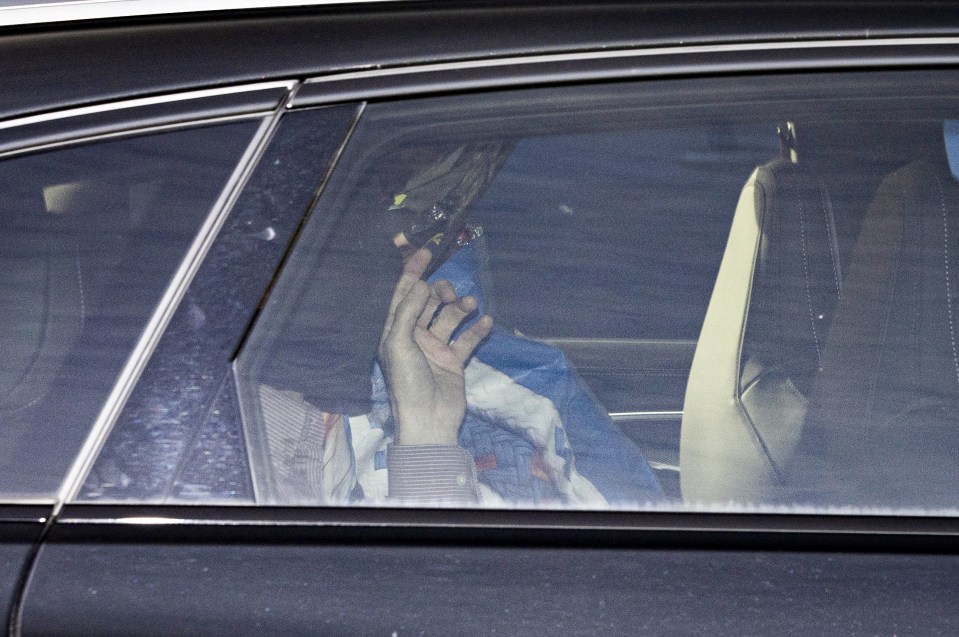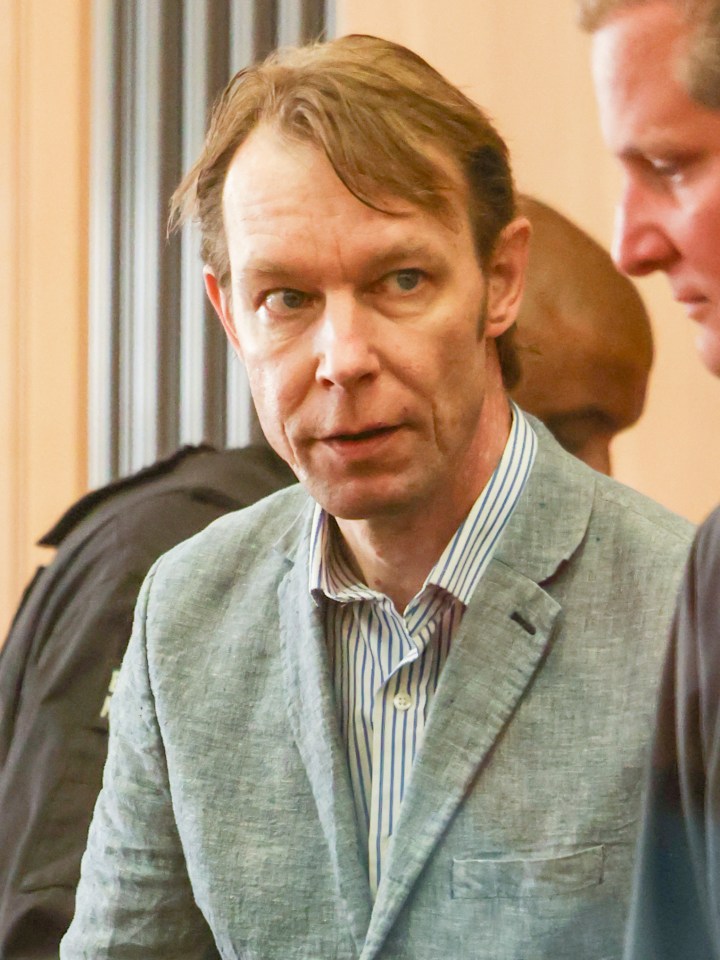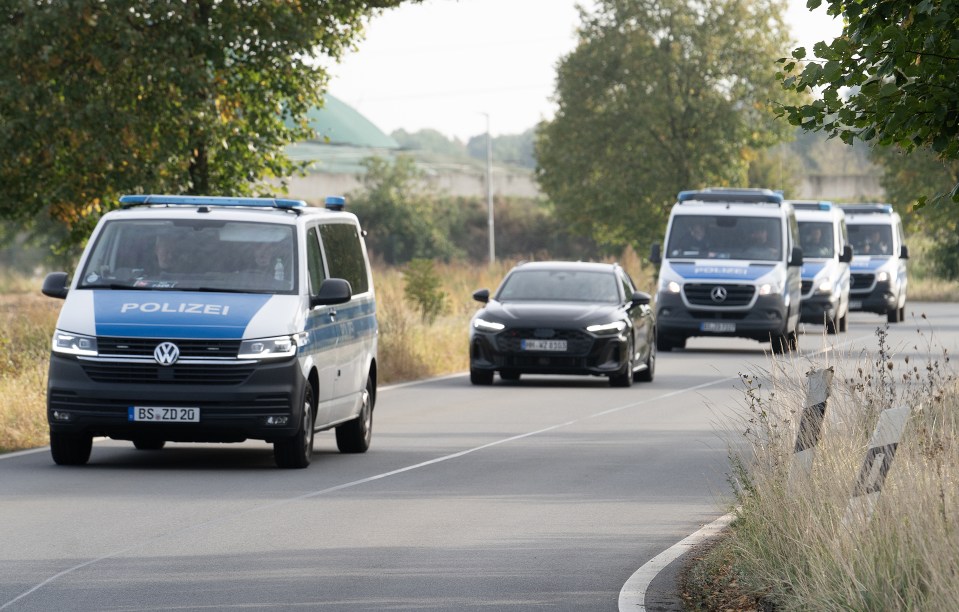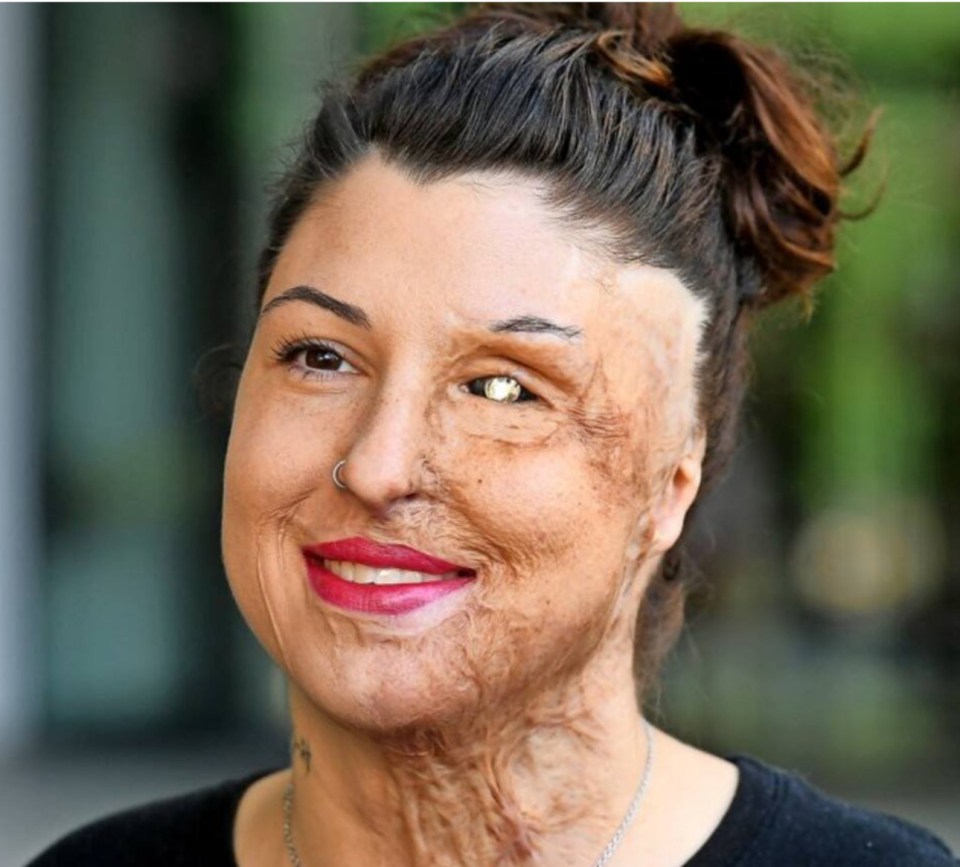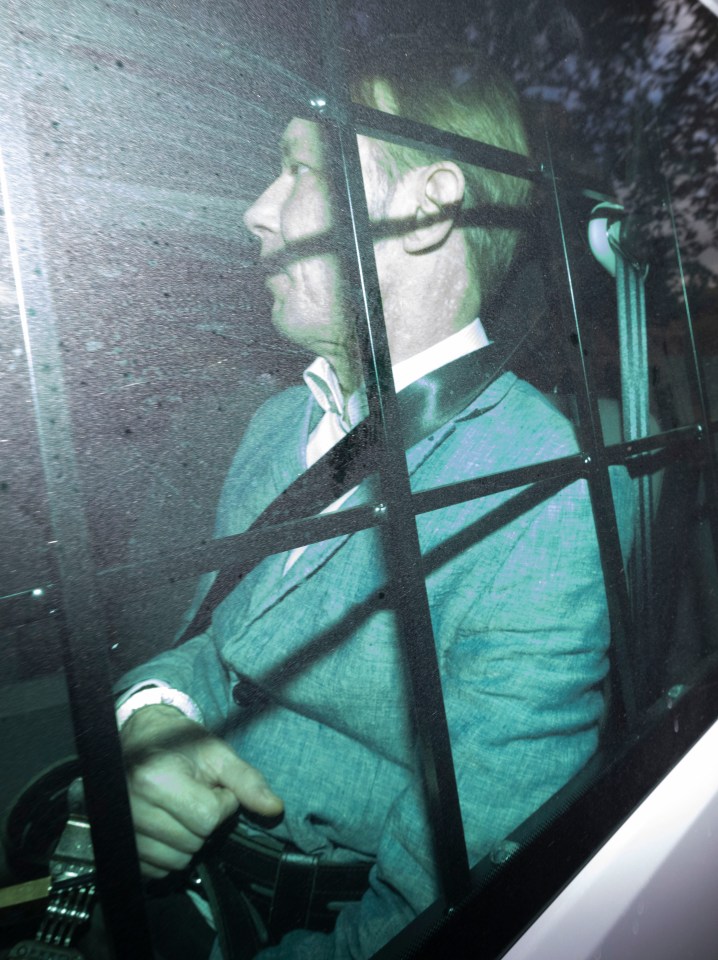HARD as it is to accept, if the prime McCann suspect disappears after his release from prison he’ll take all hope of solving the Maddie case with him. And I know who is to blame.
Prime suspect Christian Brueckner, 49, was given a meagre seven years behind bars for tying up, torturing and raping a pensioner in 2005, in Praia da Luz – the same village Maddie disappeared from two years later, but has now been released.
When he was sentenced in 2019 – after witnesses and DNA tied him to the dreadful attack – he was already a multi-convicted paedophile targeting girls as young as five and with a known obsession for brutal sexual attacks, which he privately fantasised over.
But thanks to Germany’s soft-touch justice system, he has now walked free from prison despite warnings he could reoffend, serving the same sentence a violent burglar would have faced in Britain.
And was his time behind bars tough? One lag told The Sun that JVA Sehnde prison – where Brueckner was caged – is “like Starbucks,” full of friendly staff, abundant coffee and individual TVs and electrical goods provided for every inmate.
The harsh reality is that the paltry sentence Brueckner was handed by a judge is not out of the ordinary in Germany.
Critics have described the justice system as so farcical that it has become “accommodating” to criminals and “a blessing” to violent crooks and sex attackers.
In fact, you can look no further than ten miles from the prison where McCann suspect Brueckner was housed.
In Hanover, a man dubbed “The Maschsee Murderer” isn’t hiding or scraping by after his awful crime – he is enjoying a thriving social media existence.
In 1997, Alexander K lured a friend to Lake Maschsee, strangled her, dismembered the body and dumped the remains in the water.
The right-wing extremist was sentenced to just 15 years behind bars and was simply released after serving his term, despite the brutality of his crime.
Since then, Alexander has become a TikTok phenomenon with followers fascinated by him arranging dates through apps while he openly talks about his dark past.
He would go on to post pictures and videos of women he enjoyed dinner with, callously wearing T-shirts that read: “I survived a date with the Maschsee Murderer.”
While exploiting such an unforgivable crime is forbidden in the UK, Alexander has capitalised on his past, turning his vile reputation into a source of danger tourism.
Such a clear mockery of victims and the justice system suggests Brueckner could easily disappear without a trace after his release.
Another case close to Brueckner’s former jailhouse in Hanover highlights the uphill battles faced in monitoring offenders – and keeping their victims safe and reassured.
Vanessa Münstermann’s life was transformed forever when a jilted ex took revenge by throwing acid in her face – causing her agonising pain and a lifetime of disfigurement.
The 29-year-old beautician lost an eye and an ear after she was attacked while walking her dog – and was forced to undergo surgery for years afterwards to treat her injuries.
Critics have described the justice system as so farcical it has become ‘accommodating’ to criminals and ‘a blessing’ to violent crooks and sex attackers
A judge at the time described it as “an extreme crime with extreme consequences”.
Yet her former lover is set to be released imminently after just SIX years behind bars.
Panicked Vanessa – worried about retribution – has been trying to get officials to slap him with an electronic tag to monitor his movements and include conditions not to go near her.
Despite fighting for more than two years, there are no signs of success.
Maddie suspect released
German investigators also faced a similar uphill battle before Brueckner’s release, but it appears their calls for the sex offender to be tagged have been granted.
He officially left the high-security prison in Sehnde near Hanover just after 9:15am German time yesterday morning.
The rapist was even given breakfast before being driven away in his lawyer’s black Audi A6.
A chilling image showed Brueckner wearing a red and white striped shirt as he sat in the rear seat with his hand up in the air.
Brueckner has refused to rule out fleeing Germany now that he is free, sparking fears he could slip into a non-extradition country and dodge justice forever – even if a major Maddie breakthrough is found.
Officials have tried all they can to keep track of him, with an electronic tag being mandated and the seizure of his passport.
But investigators still worry Brueckner could flee Germany despite his conditions due to no passport being required to move freely within mainland Europe.
If he crosses the German border, then it’s believed the tag would no longer work, making him untraceable.
But let’s be clear – while the German justice as a whole has allowed Brueckner to walk free, German prosecutors, the courts, and police forces can only work with the laws of their country, which appear to be stacked heavily in Maddie suspect’s favour.
This is the situation justice officials face in Germany.
In the UK, murder attracts an automatic whole-of-life sentence. Judges set a minimum tariff — usually 20–30 years, but it can be longer.
Whole-life terms are possible in the most serious cases, meaning a prisoner will never be released.
In Germany, most killers would expect to be released after just 15 years.
In the UK, violent rapists – such as Christian Brueckner – would expect to be jailed for up to 15 years – or longer if there are aggravating factors.
Post-release monitoring exists in almost every case, making it the rule rather than the exception.
In Germany, rapists can enjoy just two years behind bars, while those with longer sentences of up to ten years are usually released early.
German law offers no way back – no remedy after the case to protect its citizens from such a threat
Terrorists face life behind bars in the UK, but often just 10–15 years in Germany, again with early release after two-thirds of the sentence has been served.
Armed robbers get 10–20 years in the UK, but as little as just five years in Germany.
Madeleine McCann: Timeline of events
Here’s a timeline of the case which has gripped the world.
May 3, 2007
Madeleine McCann disappears from her family’s holiday apartment in Praia da Luz, Portugal, sparking a massive police search and becoming one of the most famous missing persons cases in history.
January 15, 2016
Neighbour reports a possible ‘grave’ at Christian Brueckner’s abandoned factory in East Germany.
Cops find disturbing images on USB sticks and launch a full-scale search.
February 16, 2016
Brueckner is convicted for abusing a girl of five in a park after images found on his laptop.
He was sentenced to 15-months behind bars but was already on the run by then.
May 3, 2017
Around this time, Helge B calls an information hotline after watching a ten-year anniversary special on the disappearance of Madeleine McCann.
He reports an alleged confession by Brueckner.
September 27, 2018
On-the-run Brueckner is arrested over outstanding drugs claims in Italy.
He is extradited to Germany the following year.
December 16, 2019
Brueckner is convicted, in Germany, for the 2005 rape of an American woman in Praia da Luz, Portugal, after his DNA was matched to a hair found on her bed.
He is sentenced to seven years behind bars.
June 4, 2020
German prosecutors reveal to the world they have a suspect in custody under investigation for the abduction of Madeleine McCann.
For the first time they claim Madeleine is dead.
German media later name him as Christian B (Christian Brueckner).
June 23, 2023
In his first interview, witness Helge B alleges to German newspaper Bild that Brueckner all-but-confessed the Madeleine abduction to him, by allegedly saying “she didn’t scream” as they talked about the case, at a music festival, in Spain.
February 16, 2024
Brueckner goes on trial accused of rape and sexual assault, unrelated to the McCann’s case, in Braunschweig, Germany.
Prosecutors hope for a conviction to keep him behind bars permanently and lead to McCann charges.
October 8, 2024
Brueckner is acquitted of all claims. Prosecutors launch an appeal.
September 17, 2025
Britain makes extensive use of probation, electronic tagging, Sexual Harm Prevention Orders, and lifelong licence conditions for high-risk offenders. Breaches can mean immediate recall to prison.
German authorities face a battle just to fit electronic tags – as shown by Brueckner’s case.
There are fewer conditions upon release – and sometimes none at all – and post-release monitoring can be as little as a weekly phone call, even for society-threatening offenders such as Brueckner.
The judge who handed Brueckner the current soft sentence from which he was yesterday released is the same judge behind his sensational acquittal for rape and sex attacks on children last year.
It’s hard not to question the court’s attitude to that trial last year. It spent years trying to reject the case but was forced to take it on by a higher court and there has been private speculation over the bad blood of being forced to take such an unwanted case.
But experts have told me the judge did exactly her job and followed German law to the letter.
Perhaps her only mistake was failing to slap an order on Brueckner at his 2019 sentence that would have given officials the option to keep him behind bars, given the extraordinary danger he poses to the public.
The argument for Germany’s preoccupation with individual liberties over society protection is understandable.
The Weimar Republic, which Adolf Hitler hijacked for his own evil ends, used police and courts to design the society it wanted – turning the justice system into a tool of dictatorship, repression and mass murder.
Modern Germany built its constitution to avoid ever again allowing courts or police to be used as instruments of tyranny, enshrining individual rights and strict limits on state power.
That is a situation the wonderful, abundantly reasonable people of Germany never want repeated.
Germany is a brilliant, modern, rich, thriving, forward-thinking democracy – with problems Britain might gladly swap its own battles for.
The people are hardworking, friendly, intelligent – but also funny and laidback in a way that smashes the clichéd image the country has sometimes carried outside its borders.
It’s well recognised here, however, that the cost of all this seems to be a propensity to forgiveness and trust in its offenders.
